Filter by

The subject's matter :self-consciousness and the body
The body may be the object we know the best. It is the only object from which we constantly receive a flow of information through sight and touch; and it is the only object we can experience from the inside, through our proprioceptive, vestibular, and visceral senses. Yet there have been very few books that have attempted to consolidate our understanding of the body as it figures in our experie…
- Edition
- -
- ISBN/ISSN
- 9780262342599
- Collation
- 1 online resource (xxi, 402 pages) :illustrations.
- Series Title
- -
- Call Number
- -
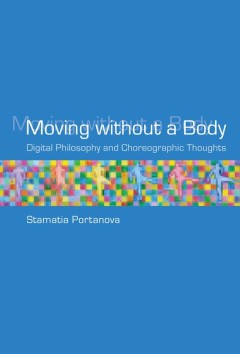
Moving without a body :digital philosophy and choreographic thoughts
Digital technologies offer the possibility of capturing, storing, and manipulating movement, abstracting it from the body and transforming it into numerical information. In Moving without a Body, Stamatia Portanova considers what really happens when the physicality of movement is translated into a numerical code by a technological system. Drawing on the radical empiricism of Gilles Deleuze and …
- Edition
- -
- ISBN/ISSN
- 9780262313858
- Collation
- 1 online resource (x, 179 pages) :illustrations.
- Series Title
- -
- Call Number
- -
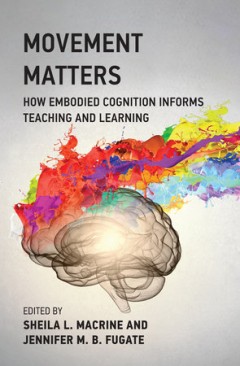
Movement Matters: How Embodied Cognition Informs Teaching and Learning
"Presents the latest research on embodied cognition's applications for educational practices, and offers perspectives on how the relationships among mind, brain, body, and environments impact learning"--
- Edition
- -
- ISBN/ISSN
- 9780262368995
- Collation
- -
- Series Title
- -
- Call Number
- -
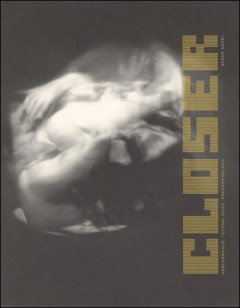
Closer :performance, technologies, phenomenology
Susan Kozel draws on live performance practice, digital technologies & the philosophical approach of phenomenology. She places the human body at the centre of explorations of interactive interfaces, responsive systems & affective computing, asking what is to be discovered as we become closer to our computers?OCLC-licensed vendor bibliographic record.
- Edition
- -
- ISBN/ISSN
- 9780262277563
- Collation
- 1 online resource (355 pages).
- Series Title
- -
- Call Number
- -
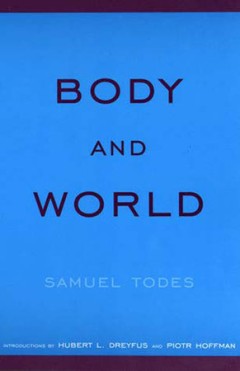
Body and world
Revised edition of: The human body as material subject of the world. New York : Garland Pub., 1990.Body and World is the definitive edition of a book that should now take its place as a major contribution to contemporary existential phenomenology. Samuel Todes goes beyond Martin Heidegger and Maurice Merleau-Ponty in his description of how independent physical nature and experience are united i…
- Edition
- -
- ISBN/ISSN
- 9780262285049
- Collation
- 1 online resource (xlvi, 337 pages)
- Series Title
- -
- Call Number
- -

The body fantastic
"An original view of human corporeality linking myths, legends, and fables with biomedical concepts about some bodily parts"--OCLC-licensed vendor bibliographic record.
- Edition
- -
- ISBN/ISSN
- 0262365693
- Collation
- 1 online resource.
- Series Title
- -
- Call Number
- -

The cosmetic gaze :body modification and the construction of beauty
If the gaze can be understood to mark the disjuncture between how we see ourselves and how we want to be seen by others, the cosmetic gaze--in Bernadette Wegenstein's groundbreaking formulation--is one through which the act of looking at our bodies and those of others is already informed by the techniques, expectations, and strategies (often surgical) of bodily modification. It is, Wegenstein s…
- Edition
- -
- ISBN/ISSN
- 9780262301114
- Collation
- 1 online resource (xii, 226 pages) :illustrations
- Series Title
- -
- Call Number
- -
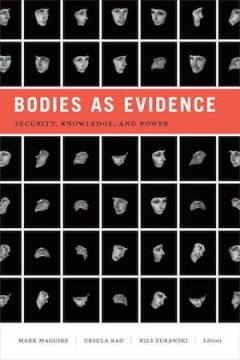
Bodies as evidence : security, knowledge, and power
From biometrics to predictive policing, contemporary security relies on sophisticated scientific evidence-gathering and knowledge-making focused on the human body. Bringing together new anthropological perspectives on the complexities of security in the present moment, the contributors to Bodies as Evidence reveal how bodies have become critical sources of evidence that is organized and deploye…
- Edition
- -
- ISBN/ISSN
- 9781478004301
- Collation
- -
- Series Title
- Global insecurities
- Call Number
- 364.4 MAG b
 Computer Science, Information & General Works
Computer Science, Information & General Works  Philosophy & Psychology
Philosophy & Psychology  Religion
Religion  Social Sciences
Social Sciences  Language
Language  Pure Science
Pure Science  Applied Sciences
Applied Sciences  Art & Recreation
Art & Recreation  Literature
Literature  History & Geography
History & Geography